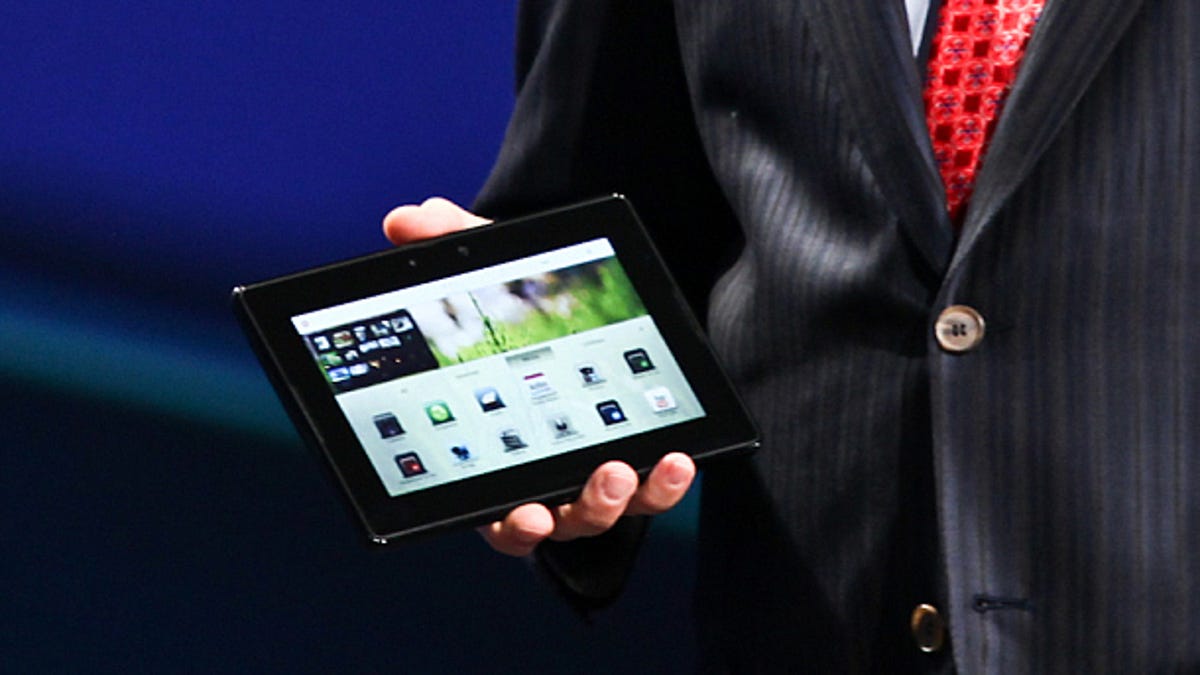Sorry, PlayBook 2.0 still isn't worth your money
Yes, the updated software now gives you access to e-mail, but tablets should do a whole lot more. Does the PlayBook offer anything the iPad or an Android tablet doesn't? Not really.

commentary The
No, don't expect the legion of BlackBerry faithful to flock to the PlayBook, now that it has the one key feature everybody said Research In Motion should have included in its tablet in the first place. At this point, even the most ardent fan has to admit that this product has been nothing but a disappointment.
RIM is hoping that the release of its PlayBook 2.0 software will spark demand for its troubled tablet. The updated operating system includes an integrated e-mail in-box, a calendar and contacts that work with social networks, and an updated BlackBerry Bridge app that enables your BlackBerry smartphone to work as a remote for the PlayBook.
I've spent a bit of time with PlayBook 2.0, and the upgrades are neat. But the changes all represent minor improvements to a tablet that needed to take massive steps forward to compete with its ever-progressing competitors.
The PlayBook launched nearly a year ago in April, and although it has new software, the hardware remains the same. Since its launch last year, we've seen the launch of less expensive, but still competitive, tablets, such as Amazon.com's
With so many new tablets either on the market or a few months away from being introduced, is there any reason to buy the PlayBook? The few upgrades it offers doesn't compare to the wide variety of capabilities enabled on the iPad and, to a lesser extent, on Android tablets. Despite incremental tweaks, the PlayBook's core problem remains the same.
Yes, PlayBook 2.0 will offer the ability to run some Google Android apps. RIM has said the process of porting over apps is relatively painless, which could yield a much richer library for PlayBook users.
But the breadth of Android apps will be limited by number and platform capabilities. Those Android apps won't be the ones running on Ice Cream Sandwich, or even Honeycomb, but rather apps designed for smaller smartphones.
RIM is also pushing to get more development of native PlayBook apps, but developers have been reluctant to bet on a platform linked to one ill-selling product. Promises that the platform will evolve into BlackBerry 10 haven't done much to reassure developers.
While RIM touts the ability to get corporate e-mail, it's actually using Exchange ActiveSync, not the company's own secure BlackBerry Enterprise Server. Without RIM's secure network, the PlayBook's e-mail access isn't any better than what can already be found on an iPad or Android tablet.
In a statement, RIM said its upcoming BlackBerry Mobile Fusion offering will be able to provide the same kind of encryption that its corporate BlackBerry e-mail gets. As part of the PlayBook 2.0 release, it said it would make an initial version of Mobile Fusion available that would support tablets and smartphones in large companies. But that is not a great argument for RIM to make when selling its PlayBook to enterprises.
RIM launched its Mobile Fusion service today (February 27), which has already been downloaded by 1,000 companies that are using the PlayBook, the company said in an updated statement.
While RIM has tinkered with improvements to its product, Apple has gone and usurped its dominant position in business--at least in the tablet area. More small businesses, large corporations, and even retail outlets are using iPads for work, leaving little room for the PlayBook to break back in.
The PlayBook, meanwhile, has largely been moving on its competitive price. A 16-gigabyte version sells for $199.99 at Best Buy.
That isn't a bad deal, but it becomes less attractive, when you consider that Amazon.com's Kindle Fire sells at the same price. The Kindle Fire is working on its own library of apps, but it has the advantage of content available to Amazon Prime customers. Yes, the Kindle Fire offers lower-end specs, but you can do more with it. Barnes & Noble today introduced a new version of its Nook Tablet for $199.
Consumers who want a bit more horsepower and access to the latest version of Android can wait a bit for a $250 tablet from Asus, which packs a Tegra 3 quad-core chip.
While still speculation, a smaller iPad could also change what consumers view as a good value, as it would already come with Apple's massive app library.
With so many options, can anyone be blamed for walking past the PlayBook without batting an eye?
Updated with at 1:25 p.m. PT with a response from RIM on the security of its e-mail access.
Updated at 12:34 a.m. PT with an updated response from RIM on Mobile Fusion.

